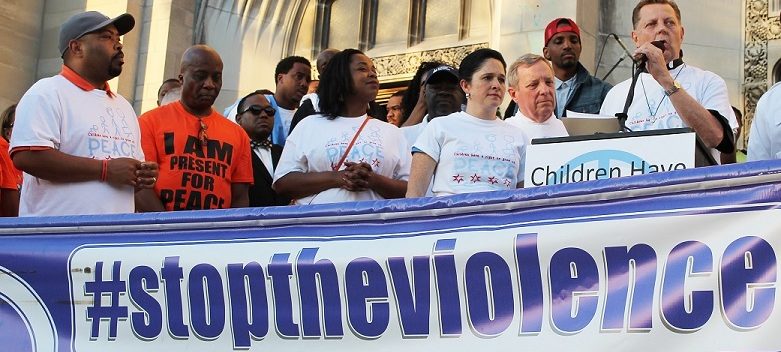Exploring grassroots organizing around violence prevention and learning to deal with trauma that results from violence in various cities has taught me a few lessons:
Education happens outside of schools.
When most people think about education, we think of children learning inside of schools. But all of the work that’s being done in Baltimore, Chicago, and Oakland is proof that people of all ages learn and develop in their communities every day. Even if they may not always feel as if they’re teaching and learning, members of organizations like Mentoring Male Teens in the Hood and Beats Rhymes and Life are constantly teaching the communities they serve that there are alternatives to violence and being controlled by trauma they’ve faced. Organizations built by parents who’ve suffered a loss, like 1000 Mothers to Prevent Violence, teach their communities how devastating violence and trauma can be on individuals and the importance of stopping it. All of these organizations and others are places where people can learn to improve their own lives and their neighborhoods.
People in cities affected by violence are constantly working to stop it.
Though I am from neighborhoods where gun violence is prevalent, even I believed the myth that very few people in my community were doing anything to stop it. At some point, it seems I was taught that neighborhoods like mine (poor and Black) would never get better because very few people cared enough to stop it. This project has proven that to be completely false. In Chicago alone, the grassroots organizations I’ve studied exist because of the dedication of dozens of people who are positively affecting the lives of hundreds. I’ve only looked at the work of four organizations in Chicago; if I were to study more, I suspect I’d find that thousands of people benefit from the services provided by such organizations. The same is most likely true of Baltimore and Oakland too, though I cannot personally speak as a resident of either city.
Media is very powerful.
For most, this statement may seem like a given. But I’ve always tried to rebel against this idea, refusing to believe that years of the same, negative types of press coverage could influence the way communities felt about themselves. As I previously stated, people like myself have slowly been taught to believe nothing positive can come from our communities. We see the bad things that happen (and I think we should be well-aware of those things so that we can know where we need to improve). But while we constantly hear about who was shot the night before, we never hear about the group of residents who host computer and healthy eating classes a few blocks away (like those at The Kleo Center). Though I can only speak as a Chicagoan, I suspect media attention is just as one-sided in cities like Baltimore and Oakland. In all of these cities, the only press attention we seem to get is when something is going wrong; it seems like anyone in the country could list the problems we face. But very few people are aware of how much energy residents are putting into fixing those problems. For me, this explains why stereotypes of Black and Brown people in cities continue to exist. It seems media presents one million and one things that are wrong with us, but never show how hundreds of people, like those who start grassroots organizations, are trying to come up with one million and one solutions.
Poor Black and Brown communities are already full of community leaders.
This is perhaps the biggest lesson I’ve learned. Personally, I’ve always heard such statements as, “We need another Martin Luther King,” or, “These young people don’t have any leadership.” Such statements, when heard for years, can make people start to believe that they’re the truth. By always telling members of a community that they aren’t worthy enough to lead even themselves, youth from those same communities may start to feel as if they have no power to change what happens in their neighborhoods. But in Baltimore, Chicago, and Oakland, there are dozens of leaders who are working to deal with trauma and prevent violence. Whether young students at local middle schools or middle aged-pastors, these communities are full of people who are willing to take risks and take charge. While it is important to reminisce about the leaders of the past, such as MLK, it is perhaps more important to recognize that there are leaders who need the support of their communities today.
– LaShonda H
